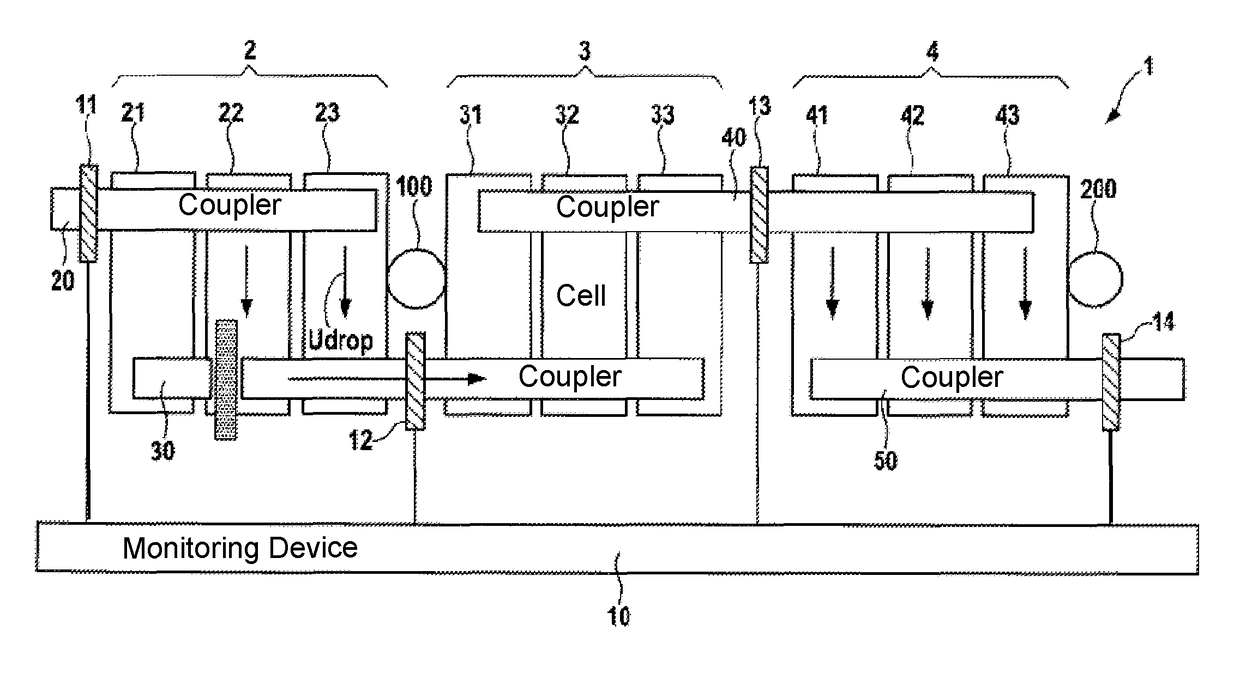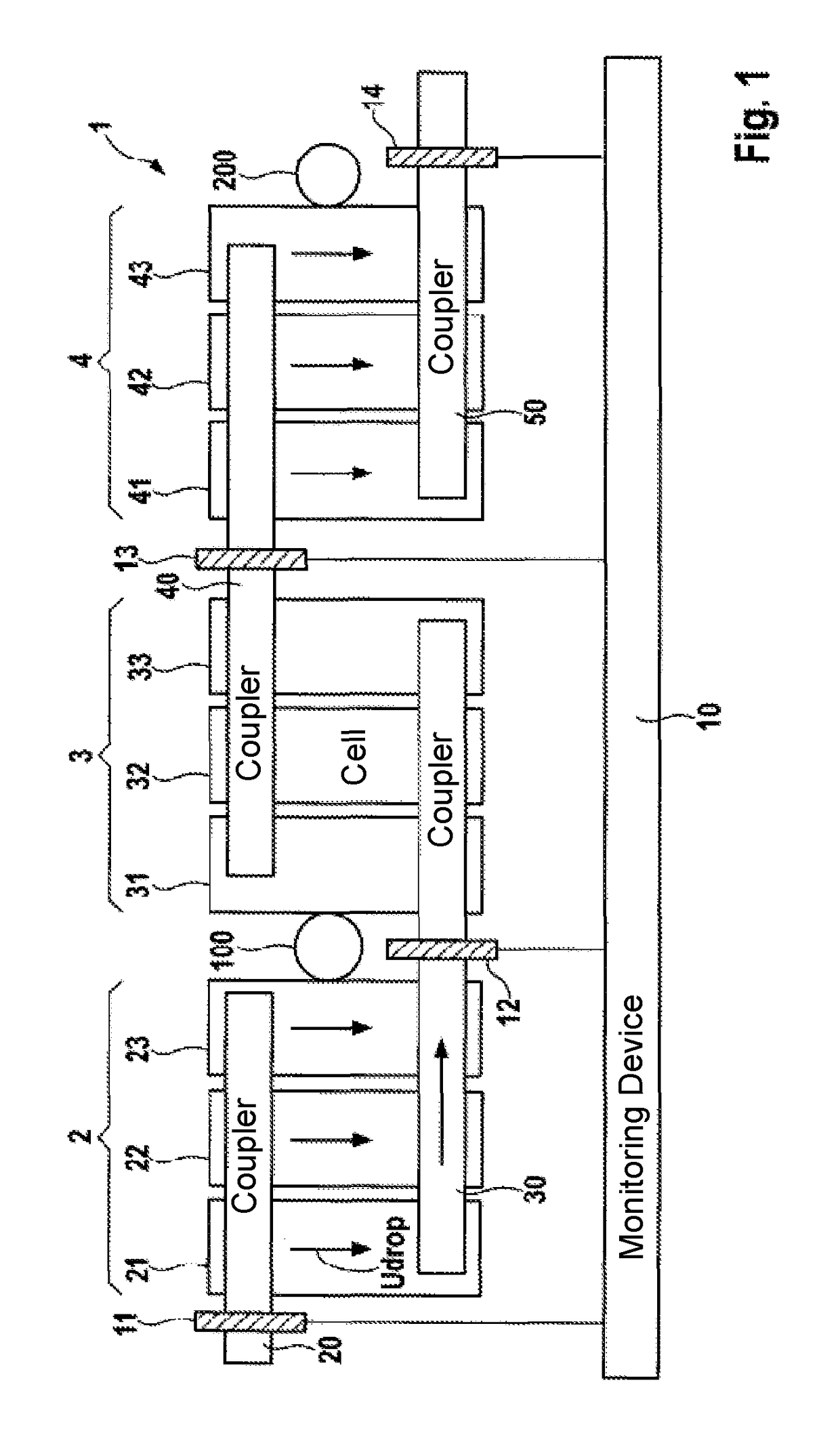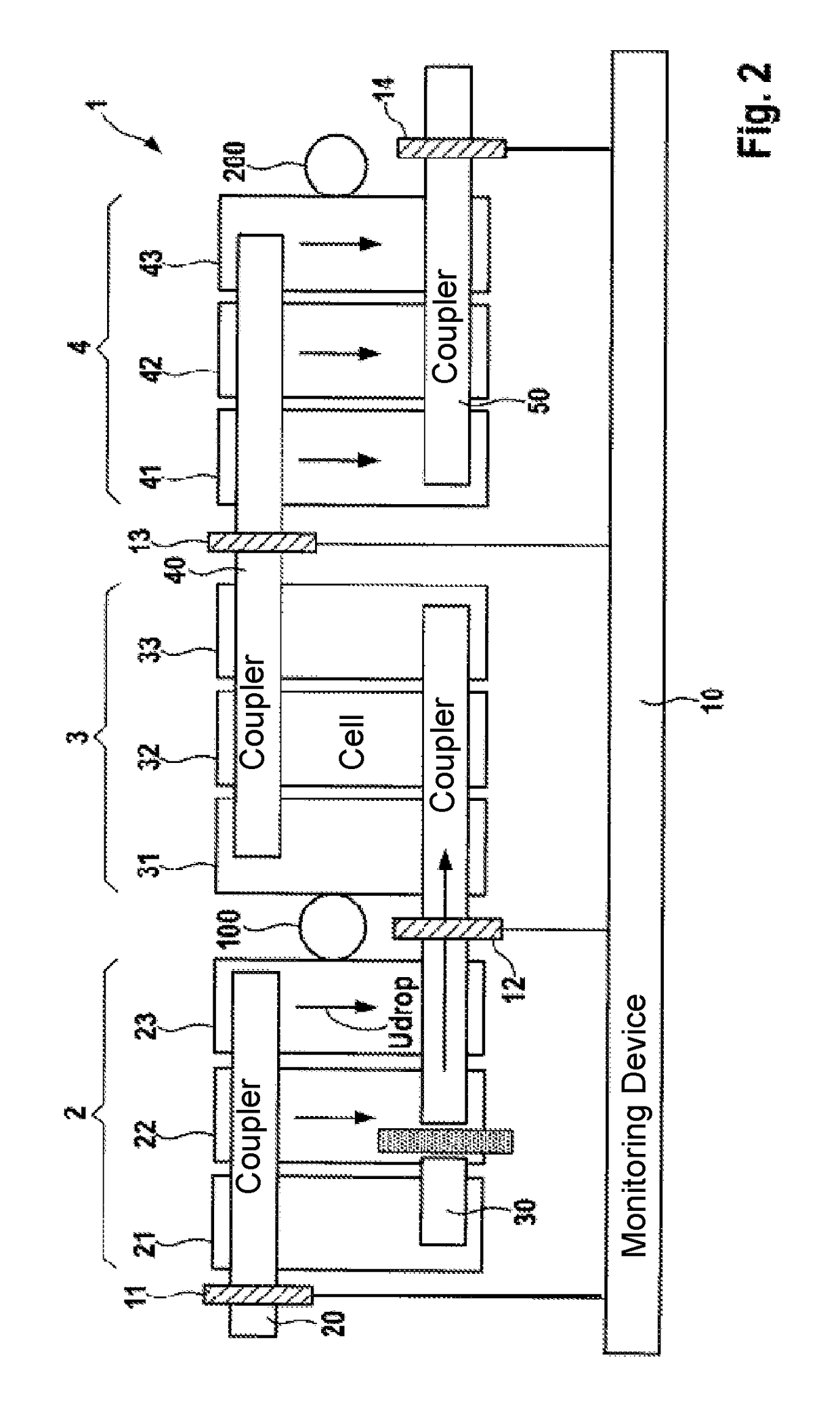Monitoring device for a battery, a lithium-ion battery, and method for the monitoring of a battery
a monitoring device and battery technology, applied in the direction of batteries, sustainable manufacturing/processing, instruments, etc., can solve the problems of time delay between fault detection and disconnection, and the damage to further cells, so as to achieve reliable and rapid disconnection, reliable and rapid detection of defective cells, and the effect of rapid and reliable disconnection
- Summary
- Abstract
- Description
- Claims
- Application Information
AI Technical Summary
Benefits of technology
Problems solved by technology
Method used
Image
Examples
Embodiment Construction
[0025]Batteries according to the invention are preferably used in electrically-powered or hybrid vehicles. The preferred type of battery is a lithium-ion battery on the grounds that, in comparison with nickel- or lead-based batteries, it combines the highest available energy density to date with minimum weight and, is best-suited for the drive system of a vehicle.
[0026]A key component of batteries is a monitoring device 10, which isolates one or more defective battery cells 21, 22, 23; 31, 32, 33; 41, 42, 43 from the remainder of the battery composite, thereby preventing more severe damage to the entire battery.
[0027]FIG. 1 shows a monitoring device 10 for a battery 1, wherein the battery 1 comprises a number of cell composites 2, 3, 4, each of which in turn is provided with a number of mutually parallel-connected battery cells 21, 22, 23; 31, 32, 33; 41, 42, 43 and electrical cell couplers 20, 30, 40, 50, by means of which the number of battery cells 21, 22, 23; 31, 32, 33; 41, 42,...
PUM
| Property | Measurement | Unit |
|---|---|---|
| open-circuit voltage | aaaaa | aaaaa |
| currents | aaaaa | aaaaa |
| voltage | aaaaa | aaaaa |
Abstract
Description
Claims
Application Information
 Login to View More
Login to View More - R&D
- Intellectual Property
- Life Sciences
- Materials
- Tech Scout
- Unparalleled Data Quality
- Higher Quality Content
- 60% Fewer Hallucinations
Browse by: Latest US Patents, China's latest patents, Technical Efficacy Thesaurus, Application Domain, Technology Topic, Popular Technical Reports.
© 2025 PatSnap. All rights reserved.Legal|Privacy policy|Modern Slavery Act Transparency Statement|Sitemap|About US| Contact US: help@patsnap.com



